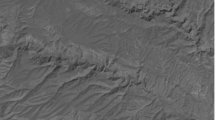Abstract
This paper proposes a novel elastic model and presents a deformable registration method based on the model. The method registers images without the need to extract features from the images, and therefore works directly on grey-level images. A new similarity metric is given on which the formation of external forces is based. The registration method, taking the coarse-to-fine strategy, constructs external forces in larger scales for the first few iterations to rely more on global evidence, and then in smaller scales for later iterations to allow local refinements. The stiffness of the elastic body decreases as the process proceeds.
To make it widely applicable, the method is not restricted to any type of transformation. The variations between images are thought as general free-form deformations. Because the elastic model designed is linearized, it can be solved very efficiently with high accuracy.
The method has been successfully tested on MRI images. It will certainly find other uses such as matching time-varying sequences of pictures for motion analysis, fitting templates into images for non-rigid object recognition, matching stereo images for shape recovery, etc.
Similar content being viewed by others
Explore related subjects
Discover the latest articles, news and stories from top researchers in related subjects.References
Kass M, Witkin A, Terzopolous D. Snakes: Active contour models. InInt’l Conf. Computer Vision, London, 1987, 259–268.
Terzopolous D, Witkin A, Kass M. Energy constraints on deformable models: Recovering shape and non-rigid motion. InProc. AAAI’87, AAAI, Calif., July 1987, Vol.2.
Cootes T F, Taylor C J. Active shape models—‘smart snakes’. InProc. British Machine Vision Conf., Leeds, 1992, 266–275.
Lai K F, Chin R T. Deformable contours: Modeling and extraction.IEEE Trans. Pattern Analysis and Machine Intelligence, 1995, 17(11): 1084–1090.
Jain A K, Zhong Y, Lakshmanan S. Object matching using deformable templates.IEEE Trans. Pattern Analysis and Machine Intelligence, 1996, 18(3): 267–277.
Geiger D, Gupta A, Costa L A, Vlontzos J. Dynamic programming for detecting, tracking, and matching deformable contours.IEEE Trans. Pattern Analysis and Machine Intelligence, 1995, 17(3): 294–302.
Brown L G. A survey of image registration techniques.ACM Computing Surveys, Dec. 1992, 24(4).
Van den Elsen P A, Pol E-J D, Viergever M A. Medical image matching — A review with classification.IEEE Eng. in Medicine and Biology, March 1993.
Ranade S, Rosenfeld A. Point pattern matching by relaxation.Patt. Recog., 1980, 12: 269–275.
Stockman G C, Kopstein S, Benett S. Matching images to models for registration and object detection via clustering.IEEE Trans. Pattern Analysis and Machine Intelligence, 1982, 4: 229–241.
Franke R. A critical comparison of some methods for interpolation of scattered data. Tech. Rep. NPS-53-79-003, Naval Postgraduate School, 1979.
Flusser J. An adaptive method for image registration.Patt. Recog., 1992, 25(1): 45–54.
Hill A, Cootes T F, Taylor C J. A generic system for image interpretation using flexible templates. InProc. British Machine Vision Conf., Leeds, 1992, pp.276–285.
Hill A, Thornham A, Taylor C J. Model-based interpretation of 3D medical images. InProc. British Machine Vision Conf., Guildford, 1993, pp.339–348.
Widrow B. The rubber mask technique. Parts I and II.Patt. Recog., 1973, 5(3).
Bajcsy R, Broit C. Matching of deformed images. InProc. Int’l Conf. Pattern Recognition, 1982, pp. 351–353.
Bajcsy R, Kovacic S. Multisolution elastic matching.CVGIP, 1989, Vol.46.
Burr D J. Elastic matching of line drawings.PAMI, Nov. 1981, PAMI-3(6).
Burr D J. A dynamic model for image registration.Computer Graphics and Image Processing, 1981, Vol. 15.
Ruprecht D, Muller H. Deformed cross-dissolves for image interpolation in scientific visualization.J. Visualization and Computer Animation, 1994, 5.
Moshfeghi M, Ranganath S, Nawyn K. Three-dimensional elastic matching of volumes.IEEE Trans. on Image Processing, March, 1994, 3(2).
Moshfeghi M. Elastic matching of multimodality medical images. CVGIP:Graphical Models and Image Processing, 1991, 53(3).
Goshtasby A, Turner D A, Ackerman L V. Matching of tomographic slices for interpolation.IEEE Trans. on Medical Imaging, Dec., 1992, 11(4).
Author information
Authors and Affiliations
Additional information
This work was done at the National Laboratory of Pattern Recognition, China.
Guan Weiguang is an Associate Professor of the Computer Science Department, Harbin University of Science and Technology, and a guest researcher at National Laboratory of Pattern Recognition (NLPR). He received doctoral degree in pattern recognition and intelligent control from NLPR in 1995. His research interests include computer vision, volume visualization, virtual reality, and image processing.
Xie Lin is an Engineer of the First Hospital of Harbin Medical University. Her research interests include medical image processing and analysis, and database.
Ma Songde is a Professor at National Laboratory of Pattern Recognition, an IEEE senior member. He received his Ph.D. degree in computer vision from the University of Paris VI, France in 1986. His research interests include computer vision, robotics, image processing, computer graphics, and multimedia.
Rights and permissions
About this article
Cite this article
Weiguang, G., Lin, X. & Songde, M. Deformable registration of digital images. J. of Comput. Sci. & Technol. 13, 246–260 (1998). https://doi.org/10.1007/BF02943193
Received:
Revised:
Issue Date:
DOI: https://doi.org/10.1007/BF02943193




